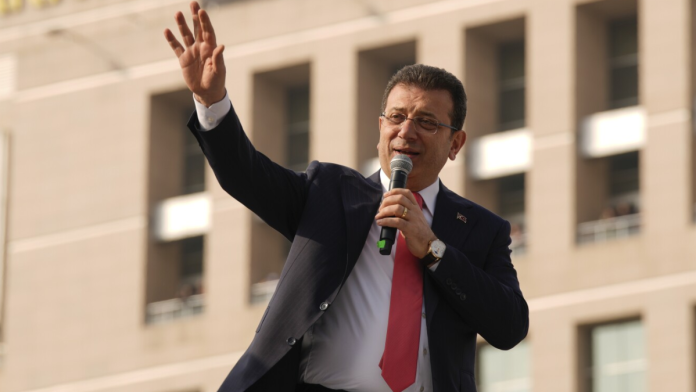In a dramatic turn of events, a Turkish court has issued another formal arrest order against Istanbul’s jailed mayor, Ekrem Imamoglu, on accusations of “political espionage.” The announcement, made by the state-run Anadolu news agency, adds a new layer of tension to what many see as an intensifying crackdown on opposition figures in the country.
Imamoglu, one of the most popular figures in Turkish politics and a strong opponent of President Tayyip Erdogan, is already behind bars on unrelated corruption charges. He has been in jail since March, awaiting trial for allegedly misusing public funds during his time in office. Despite this, the latest charge — involving political espionage — has sparked even more debate and concern both within Turkey and internationally.
The court’s decision comes just months after Imamoglu was handed another prison sentence in July for allegedly insulting and threatening Istanbul’s chief prosecutor. This marks the third major criminal case launched against the mayor in recent years, fueling claims from critics that the legal system is being used to silence dissenting political voices.
The growing list of accusations
The fresh “political espionage” charge accuses Imamoglu of unlawfully obtaining or sharing state secrets related to political activities and international relations. While officials have not publicly shared detailed evidence, the court ruling suggests investigators believe the mayor may have accessed or transmitted confidential political information.
Imamoglu strongly rejected the claim in a court appearance on Sunday. From his jail cell, he issued a powerful statement through his legal team, calling the accusations “a complete fabrication.” He later reiterated his stance in a post on social media, saying, “Such a slander, lie, and conspiracy wouldn’t even cross the devil’s mind! We are facing a shameful indecency that can’t be described with words.”
Imamoglu’s supporters argue that the repeated legal actions against him are politically motivated, pointing out that Imamoglu was one of the few opposition leaders to successfully challenge Erdogan’s ruling party in recent years. His victory in Istanbul’s mayoral election in 2019 was seen as a major political upset, as the city had long been under the control of the ruling party.
However, government representatives and prosecutors insist that the charges are purely legal and not politically driven. They say that the judiciary is acting independently and that every citizen, regardless of position, must face the law if found guilty of wrongdoing.
The tension surrounding Imamoglu’s legal troubles has also triggered widespread discussion about judicial fairness, political freedom, and the limits of opposition in Turkey. The latest espionage accusation, in particular, has deepened public unease, as such charges carry heavy penalties and can be used to justify prolonged detention.
Public outrage and protests across Turkey
The arrest order of Imamoglu has led to a wave of reactions across the country. Thousands of citizens took to social media to express their opinions, with hashtags supporting the jailed mayor trending throughout the weekend. Opposition leaders have condemned the move as part of a broader effort to silence one of the most prominent rivals to the government.
Local reports indicate that several public gatherings and candlelight vigils were held in Istanbul and other major cities. Many protesters carried banners demanding “justice” and “freedom,” while others accused authorities of using the justice system for political gain. The atmosphere in Istanbul has grown tense, with citizens voicing fears over shrinking space for open political expression.
Russian courts sentence nearly 200 Ukrainians for ‘espionage’ in occupied territories
Supporters defend the judiciary as tensions deepen
Opposition supporters view the charges against the mayor as unfair, while government backers argue that the judiciary must be respected and that no one is above the law. Political analysts believe the case could significantly impact Turkey’s political climate ahead of upcoming elections. Despite his imprisonment, the mayor retains strong support among his followers, who see him as a symbol of resistance. His statements from prison circulate widely online.
The charges of corruption, defamation, and espionage have created turmoil in Istanbul’s political scene, with deputy mayors taking on limited responsibilities due to his absence. Rights organizations express concern over judicial independence and the targeting of opposition figures. The mayor remains in custody as his legal team appeals the espionage charge, insisting there’s no credible evidence. The controversy surrounding Turkey’s political and judicial systems persists.


